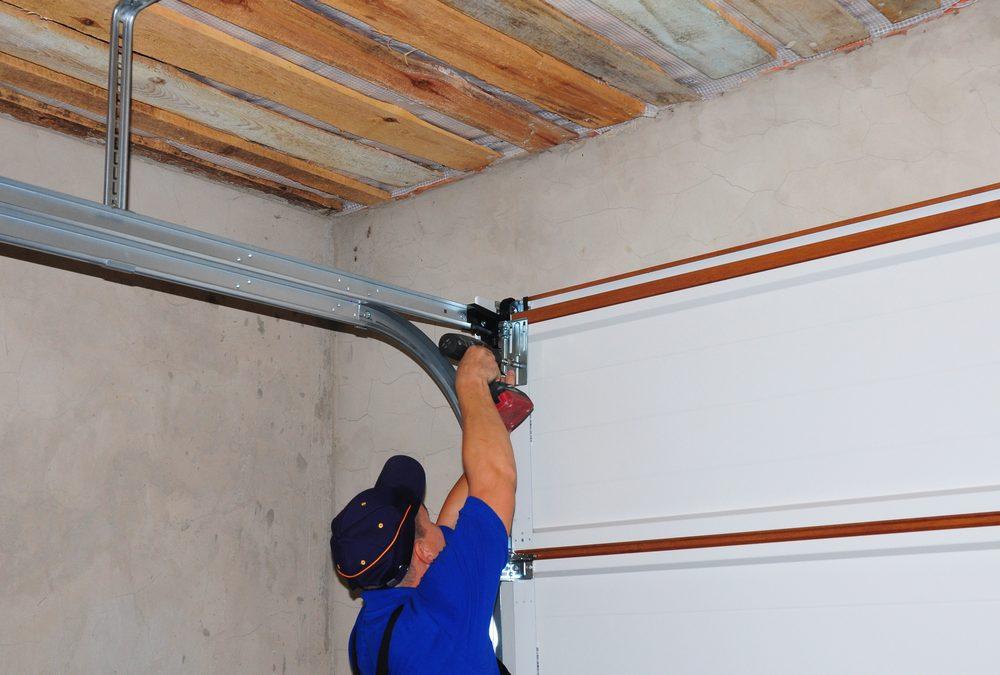Understanding Why Your Garage Door Gets Stuck When Opening
Is your garage door causing frustration by getting stuck when you try to open it? This issue can be both inconvenient and potentially dangerous, but fear not! In this guide, we’ll delve into the possible reasons why your garage door is getting stuck and provide you with practical solutions to address the problem effectively.

Identifying the Problem: Garage Door Getting Stuck When Opening
One of the most frustrating experiences for any homeowner is encountering a garage door that refuses to open smoothly. You may find that the door starts to open but then abruptly stops or gets jammed midway, leaving you perplexed and stranded outside or inside your garage. This common issue can stem from various underlying causes, ranging from mechanical issues to environmental factors.
Garage Door Getting Stuck When Opening: Common Causes
1. Misaligned Tracks
Misaligned tracks are a frequent culprit behind garage doors getting stuck during opening. Over time, the horizontal and vertical tracks that guide the door’s movement can become misaligned due to regular usage, loose mounting brackets, or physical impacts. When the tracks are out of alignment, the rollers may encounter obstacles or bind against the track, hindering the door’s smooth operation.
2. Broken Springs
Another potential cause of a stuck garage door is broken or damaged springs. Garage door springs play a crucial role in counterbalancing the door’s weight, making it easier to open and close. However, when a spring breaks, the door may become imbalanced, causing it to jam or get stuck during operation. Broken springs can pose significant safety risks and should be addressed promptly by a qualified technician.
Read too: The Complete Guide to Tighten Chain On Garage Door Opener for Smooth Operation
3. Obstructed Sensors
Modern garage doors are equipped with safety sensors that detect obstructions in the door’s path and prevent it from closing to avoid accidents or injuries. If these sensors are misaligned or obstructed by dirt, debris, or other objects, they may falsely signal that there is an obstruction, causing the door to reverse or remain stuck when opening. Regularly cleaning and inspecting the sensors can help prevent this issue.
4. Damaged Rollers or Hinges
Worn-out or damaged rollers and hinges can impede the smooth movement of your garage door, leading to sticking or jamming during opening. Rollers may become worn or rusted over time, while hinges may suffer from metal fatigue or corrosion. Replacing worn components with new ones can restore the door’s functionality and prevent future issues.
Troubleshooting and Fixing the Problem
Adjusting Track Alignment
To address misaligned tracks, carefully examine the tracks for any signs of misalignment or damage. Use a level to ensure that the tracks are properly aligned both horizontally and vertically. Tighten any loose mounting brackets and gently tap the tracks back into alignment if necessary. Avoid applying excessive force, as this can further damage the tracks.
Spring Replacement
Broken garage door springs should always be replaced by a professional technician due to the high tension involved. Attempting to replace springs yourself can be extremely dangerous and may result in serious injuries or property damage. Contact a reputable garage door repair service to safely replace the damaged springs and restore your door’s functionality.
Sensor Realignment and Cleaning
If your garage door sensors are malfunctioning, start by cleaning the sensor lenses with a soft, dry cloth to remove any dirt or debris. Check for any obstructions blocking the sensor’s line of sight and adjust the sensor alignment if necessary. Most sensors have indicator lights that will illuminate when properly aligned. Refer to your garage door opener’s manual for specific instructions on sensor adjustment.
Roller and Hinge Maintenance
Regular maintenance of your garage door’s rollers and hinges is essential for ensuring smooth operation. Inspect these components regularly for signs of wear or damage, such as rust, cracks, or excessive noise during operation. Apply a lubricant specifically designed for garage door parts to keep the rollers and hinges moving freely.
Conclusion
Dealing with a garage door that gets stuck when opening can be frustrating, but with the right knowledge and troubleshooting techniques, you can identify the underlying causes and implement effective solutions. By addressing issues such as misaligned tracks, broken springs, obstructed sensors, and damaged rollers or hinges, you can restore your garage door’s functionality and enjoy smooth, hassle-free operation once again.
Remember, safety should always be your top priority when working on garage door repairs. If you’re unsure about how to address a particular issue or if the problem persists despite your efforts, don’t hesitate to seek assistance from a professional garage door technician. With the proper care and maintenance, your garage door can continue to serve you reliably for years to come.



Leave a Reply